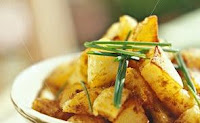It is becoming a common knowledge that kids nowadays tend to have early puberty. Quite a lot of them start puberty as early as 7 years old! Young girls start menstruating at this age and their body start to change to become more womanly. Gosh. I remember back in my days, puberty starts around 10-12 years old. What a huge difference.
Apparently, what a pregnant mother eats during her pregnancy, and also lactation, a ffects her child's puberty. Researchers from Auckland University, New Zealand, found that the offspring of rats given high-fat diets started puberty significantly earlier compared to those rats given healthy diets. The same thing applies for rats given a calorie restricted diet.
ffects her child's puberty. Researchers from Auckland University, New Zealand, found that the offspring of rats given high-fat diets started puberty significantly earlier compared to those rats given healthy diets. The same thing applies for rats given a calorie restricted diet.
The disadvantages of having early puberty would involve:
- changes in mood disorder
- increased prevalence in depression in adolescence
- increases in sexual activity in teenagers
- early puberty and early menopause in female
- link between early first period and breast cancer in female
- increased aggressive behaviour and risk taking behaviour in male
This study has just been published in the online journal PLoS ONE. Further research is needed though to replicate the study using different strains of rats, because different strains behave differently to diets and hence its impact.
Apparently, what a pregnant mother eats during her pregnancy, and also lactation, a
 ffects her child's puberty. Researchers from Auckland University, New Zealand, found that the offspring of rats given high-fat diets started puberty significantly earlier compared to those rats given healthy diets. The same thing applies for rats given a calorie restricted diet.
ffects her child's puberty. Researchers from Auckland University, New Zealand, found that the offspring of rats given high-fat diets started puberty significantly earlier compared to those rats given healthy diets. The same thing applies for rats given a calorie restricted diet.The disadvantages of having early puberty would involve:
- changes in mood disorder
- increased prevalence in depression in adolescence
- increases in sexual activity in teenagers
- early puberty and early menopause in female
- link between early first period and breast cancer in female
- increased aggressive behaviour and risk taking behaviour in male
This study has just been published in the online journal PLoS ONE. Further research is needed though to replicate the study using different strains of rats, because different strains behave differently to diets and hence its impact.
